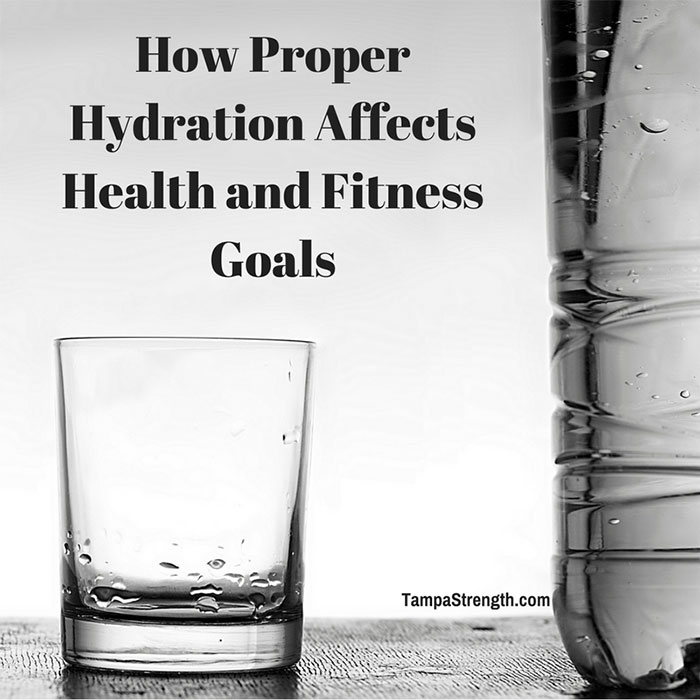How Proper Hydration Affects Weight Loss Goals
Many people abandon their fitness goals and efforts when they grow frustrated due to lack of results or progress.
While factors such as diet and routine affect a person’s weight loss success, a commonly overlooked element of weight loss is proper hydration.

Water makes up 70% of the human body and 80% of the human brain.
Proper hydration affects health and fitness on physiological levels internally as well as externally and increases functioning while reducing fatigue of both the body and mind. The amount of water a person should consume varies based on weight and activity level but on average, men should be drinking 3 liters daily and women should be drinking 2.2 liters daily.
Increasing water intake not only affects weight loss by speeding the metabolism and reducing bloating, it also improves brain function and reduces mental fatigue.
German researchers have found definitive proof that ingesting more water increases the body’s metabolism:
The research proved that a person who increases their usual daily water intake by 1.5 liters, burned an additional 17,400 calories over the course of a year which amounts to a weight loss of about five pounds. The burning of those calories is a result of the energy it takes for the body to internally heat the water as it is being digested.
While drinking a large amount of water in a short amount of time may temporarily stretch your stomach and create bloat, long-term consumption of large quantities of water actually helps a person reduce water retention and eliminate bloating.
Water retention occurs when the body preserves water in the organs, tissues, and skin which can cause a swollen appearance and feeling, particularly in the extremities.
When the body is properly hydrated, it adjusts to properly expelling fluids through urination, sweating, bowel movements, and saliva which banish other toxins and contaminants from the body. Retaining water not only slightly affects a person’s numeric weight, but bloating causes puffiness in the skin which can disguise visible weight loss results causing frustration.
Brain function is an often overlooked element of overall bodily health.
The brain is made up of cells which contain water and other elements it needs to work properly. When those brain cells lose water, it results in diminished performance which leads to lower energy, attention deficits, mental fatigue, and memory dysfunction. Sleep is another factor that alters overall mental function, and proper hydration also influences one’s quality of sleep.
These internal systems affect bodily energy as well.
When the different parts of the body are running efficiently, it allows a person to perform optimally and to avoid becoming tired or fatigued.
Proper exercise and hydration form major components of weight loss and effectual development or lean muscle mass all of which contribute to overall weight loss.
In conclusion, increasing one’s water intake can vastly improve his/her overall health and assist in reaching fitness goals. While a person’s fluid needs and expenditures vary based on lifestyle and activity level, on average, a man should be drinking 3 liters of water daily, and a woman should consume 2.2 liters respectively.
Proper hydration increases metabolism, reduces water retention, and improves overall functioning while managing fatigue which all contribute to achieving optimal health, wellness, and weight loss.
For more information on reaching your fitness goals, contact Shawn@TampaStrength.com.








